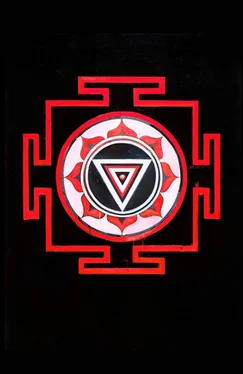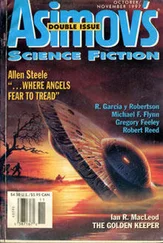I didn’t have a gun, but I knew where to find one.
‘No, I’m good, until the clock runs down. It’s gonna be an interesting night. Thanks for the warning. I’ll see you in twenty-four hours. Allah hafiz .’
I straightened my bike from the side-stand, and prepared to kick-start.
‘Whoa, whoa!’ Tall Tony said.
‘Where the fuck you goin’?’ Ravi asked.
‘I know a place,’ I said.
‘A place?’ Abdullah frowned.
‘A place,’ I said. ‘ Allah hafiz .’
‘Whoa, whoa!’ Tall Tony said.
‘What place?’ Ravi asked.
‘There’s a place I know with a way in, that everybody knows, and a way out that only I know.’
‘What the fuck?’ Comanche asked.
‘I’ll get my gun,’ I said, ‘some fruit, and a couple of beers, and retire there for twenty-four. I’ll see you guys later. I’m good.’
‘Not gonna happen,’ Ravi said, shaking his head.
‘We are forbidden by Sanjay from helping you,’ Abdullah said. ‘But in a time of crisis like this, with a Council member like Fardeen killed, many young men from outside the Company are riding the streets with Company men, patrolling the whole boundary of the south with us. Comanche has joined us, and he is retired from the Company.’
‘Damn right,’ Ravi said.
‘There is nothing to stop you riding with us,’ Abdullah continued, ‘while we make patrols. And nothing to stop you resting with us, for the next twenty-four hours, as a gesture of your support for the Sanjay Company.’
‘And if you choose to do that -’ Tall Tony said.
‘- we can’t stop you,’ Ravi finished.
‘So, come, Lin, and ride the boundary of South Bombay with us for the next twenty-four hours,’ Abdullah said, clapping me on the shoulder. ‘And offer us your protection, in this time of attacks on the Company.’
It was a nice offer, one you remember, but I didn’t feel right accepting it.
‘And suppose one of you takes a bullet for me?’ I asked. ‘How am I gonna feel about that?’
‘Suppose you take a bullet saving one of us?’ Abdullah replied, starting his bike. ‘How will you feel about that?’
The others started their bikes and we rode off together, settling into a slow speed after the bikes were warm, and cruising the streets and boulevards, two in front, three behind.
Men block things out. Men are driven by duty, and block out anything that stands in the way of their duty.
There was a new price on my head, and I had no idea who put it there, but I blocked it out, thinking only of survival. Maybe the fact that I already had a bounty on my head, offered by my own government, made it easier to block, and give myself to the boundary ride with Abdullah and the others, patrolling for surprise attacks by Scorpion Company killers.
It wasn’t the first time I’d ridden a patrol in South Bombay. Other gangs had tried to take territory in the tourist-rich peninsula. We’d ridden patrols through the night in anticipation of attacks, which sometimes came: attacks that would’ve been worse, if we hadn’t been able to respond with mobile patrols in less than thirty seconds, anywhere in the south.
Two teams of four men patrolled a four-hour shift, which was the polite limit for the motorcycles.
The dragon’s mouth of the Island City is roughly the same size as Manhattan. We cruised dozens of circuits in those hours. Fortunately, South Bombay is ravined with tiny walkways, wide enough for motorcycles. They provided a network of short cuts that shaved minutes of traffic, and offered endlessly surprising entries and exits to major arterial routes.
The times that we stopped patrolling and talked to people were as important as the time in the saddle. Every helpful whisper is a way to strike the enemy. Home ground advantage is the ace of spades, in turf wars. Attention to detail is the ace of hearts. A supportive community that likes and trusts you at least as much as they like and trust the police is the royal flush.
In fact, the cops joined in with the Sanjay Company, after Fardeen’s murder, allowing a limited amnesty for Company men to carry weapons.
The Scorpions, Didier’s sources assured him, were trying to force their way into the south with a combination of violence and religious nationalism. They felt that the cops should support their control of South Bombay, because they saw themselves as patriots, and the Sanjay Company as traitors.
The cops were under strict orders to react swiftly in matters of religious sentiment, which was a convenient excuse for Lightning Dilip. He joined with Sanjay Company men, who paid him with more than patriotic fervour, and sent his jeep patrols to hunt down Scorpions for disturbing communal harmony.
It was a tense business, during the truce, being immune from police aggression. Most of us preferred the aggression. You know where you stand, when everyone’s playing by the same rules. When the cops are the good guys, it’s time to think about another game.
It was eerie, stopping at a traffic signal and having a police jeep draw up alongside; having the cops try to smile, and even make small talk, when you’ve been beaten in the back of the same jeep, by the same cops.
At the end of our patrol, when no-one had heard or seen anything unusual, we stopped near Haji Ali’s tomb, where Tardeo met Pedder Road.
Everything south of that point was Sanjay Company territory, from sea to sea. The tomb of the saint was on neutral ground, and gangsters from all over Bombay came to the shrine peacefully, even gangs that were at war.
Abdullah left the bikes with a contact at the nearby service station, and led us on the long walk across the land bridge footpath to the small island tomb of the saint.
We’d all performed the gangster ritual before: a late-night walk to the saint’s tomb, before battle.
Haji Ali, then simply a wealthy Uzbek merchant named Ali, gave up all he had to the poor, and went on a pilgrimage to Mecca.
He travelled all of the world that a traveller could reach. It was a difficult thing to do, because it was the fifteenth century, but he went everywhere, carrying his belongings on his back, and learning everything that could be known.
A man of good taste, he settled in Bombay, and was renowned in the city and beyond for his piety. He died while on the annual Haj. The coffin carrying his body was lost at sea, but washed up, miraculously, on the shores of Bombay, where his tomb was built.
Once a day, in high season, the sea washed the path to Haji Ali’s tomb away, leaving it invisible below the menacing water. It was as if the saint sometimes said, Please, enough , and was released from the world of our sins and sorrows by a drowned path, letting him sleep in peace to restore his power as one of the great protectors of the city.
On that night, the path across the sea was dry and almost deserted. The wind was sharp, and came in ruffling bursts. We walked alone, six gangsters, toward the island tomb, moonlight throwing long shadows on a mirror of shallow tide.
The rounded rocks beneath us on either side of the wide path were exposed: black wet things clinging to the path for shelter, their backs bent to the sea.
Incense, burning in bunches as thick as a camel’s hoof, filled the air with fragrances of devotion.
I didn’t follow the ritual on the path across the sea to the island shrine. Gangsters going to war walked toward the shrine thinking of the harm they’d done in the past, prayed for forgiveness at the tomb, and walked away from the shrine ready for hell. I didn’t do it, that time.
I thought of Karla, and how angry we’d been when we’d said goodnight.
I didn’t think about who’d taken the contract out on me. The list of suspects was long, and I couldn’t shorten it by thinking about it. As it turned out, Abdullah shortened it for me, as we walked back across the sea, on the strip of stone that joined the shore.
Читать дальше












